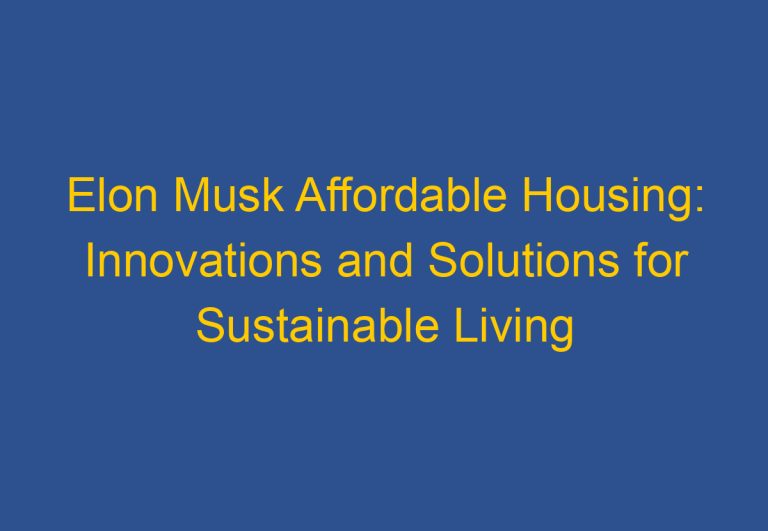Noah Certified Tiny Homes for Sale: Quality Living in Compact Spaces
Tiny homes are becoming increasingly popular as more people seek a simpler and more sustainable lifestyle. NOAH certified tiny homes for sale offer a unique opportunity for those looking to combine the charm of tiny living with peace of mind, knowing that their home meets rigorous quality and safety standards. With various styles and sizes available, these tiny houses provide an appealing alternative to traditional living spaces.
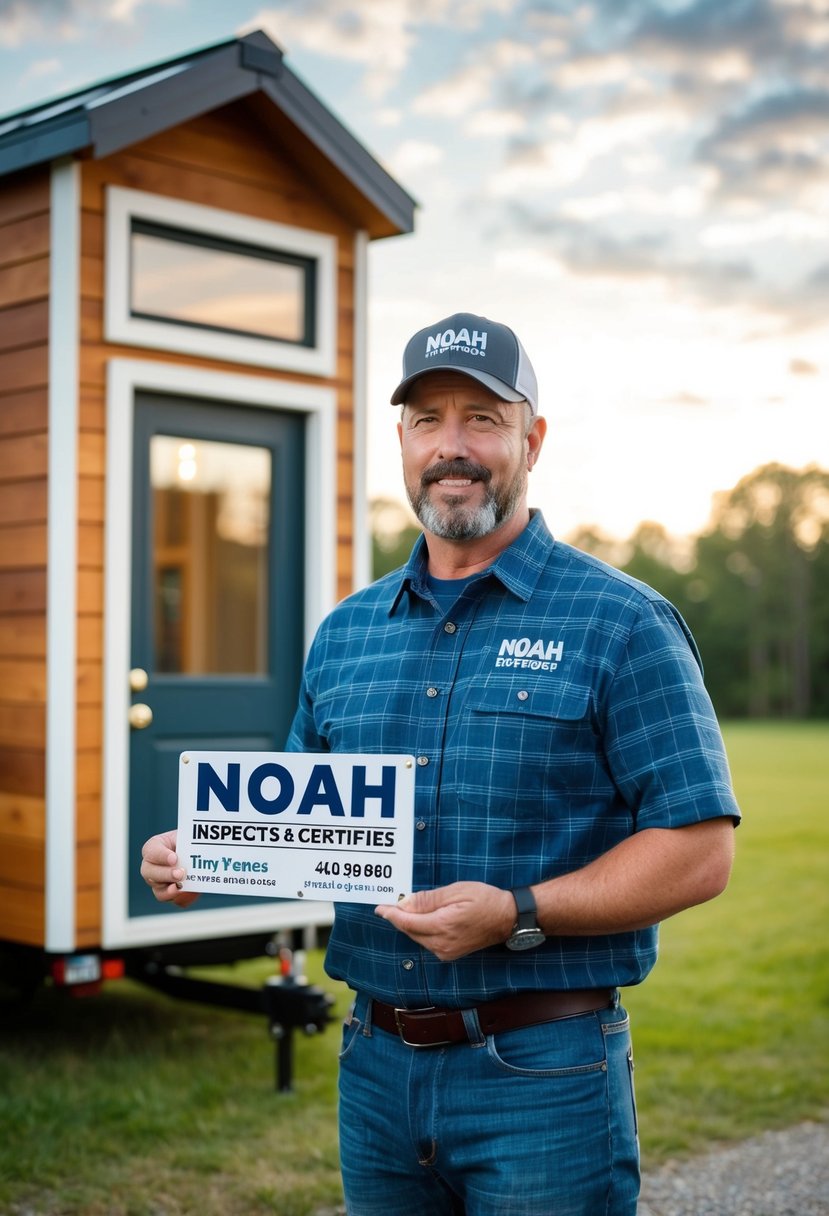
For those curious about tiny living, the benefits are clear. These compact homes help reduce clutter and encourage a minimalist lifestyle.
NOAH certification ensures that each tiny home is inspected and approved, making it easier for buyers to find a safe and reliable option.
Whether it’s for a vacation spot, a permanent residence, or a mobile lifestyle, a NOAH certified tiny home might just be the perfect fit.
As the tiny house movement grows, more listings are surfacing, reflecting the diverse designs and features available.
From cozy studios to spacious models with multiple bedrooms, there is something for everyone.
Exploring the market for NOAH certified tiny homes can lead to exciting possibilities for those ready to embrace a new way of living.
Understanding NOAH Certification
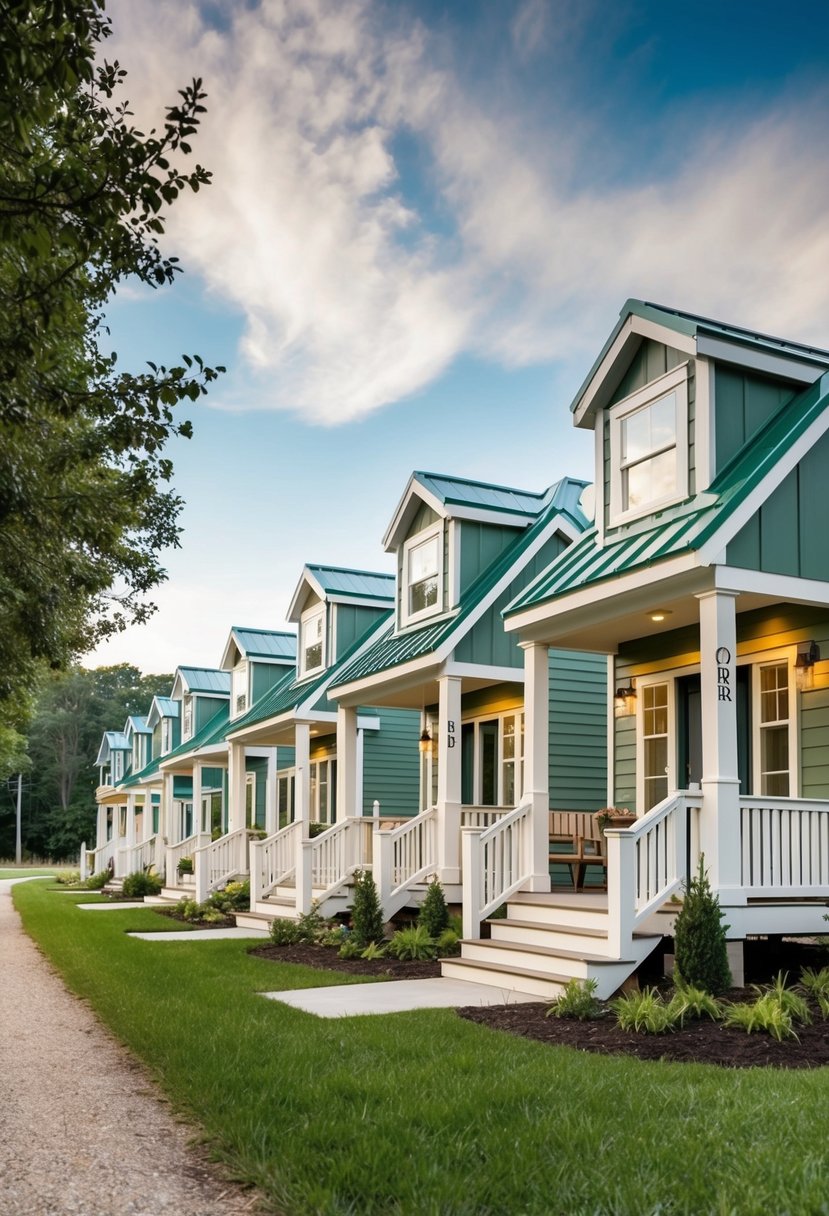
NOAH certification is essential for tiny homes, ensuring they meet specific construction and safety standards. This process provides buyers with confidence in the home’s quality and resilience.
Benefits of NOAH Certification

A NOAH-certified tiny home offers numerous advantages. First, it confirms that the home meets strict safety regulations.
This includes proper insulation, which is crucial for energy efficiency and comfort. Additionally, these homes are tested for structural integrity to withstand various weather conditions.
Another benefit is the assurance of high-quality materials, including reliable water heaters and electrical systems.
Buyers can trust that their home has undergone rigorous inspections, reducing the risk of future problems.
Many lenders and insurance companies prefer NOAH-certified homes, allowing for better financing options.
In summary, NOAH certification enhances the value and safety of tiny homes, making them a wise investment.
NOAH Standards and Compliance

NOAH sets clear and enforceable standards for tiny homes. These standards address multiple areas, including construction quality, safety protocols, and compliance with local building codes.
Tiny homes must pass inspections that assess structural components, heating systems, and plumbing features.
This ensures that factors like insulation and water heaters meet current safety requirements.
The certification process includes detailed reviews by trained inspectors to maintain these high standards.

Compliance with NOAH guidelines helps protect buyers and enhances the longevity of the structure.
Homes that meet these criteria are likely to perform better during harsh conditions, such as strong winds or heavy snow.
Through this rigorous process, buyers gain peace of mind knowing their investment is secure.
Types of NOAH Certified Tiny Homes
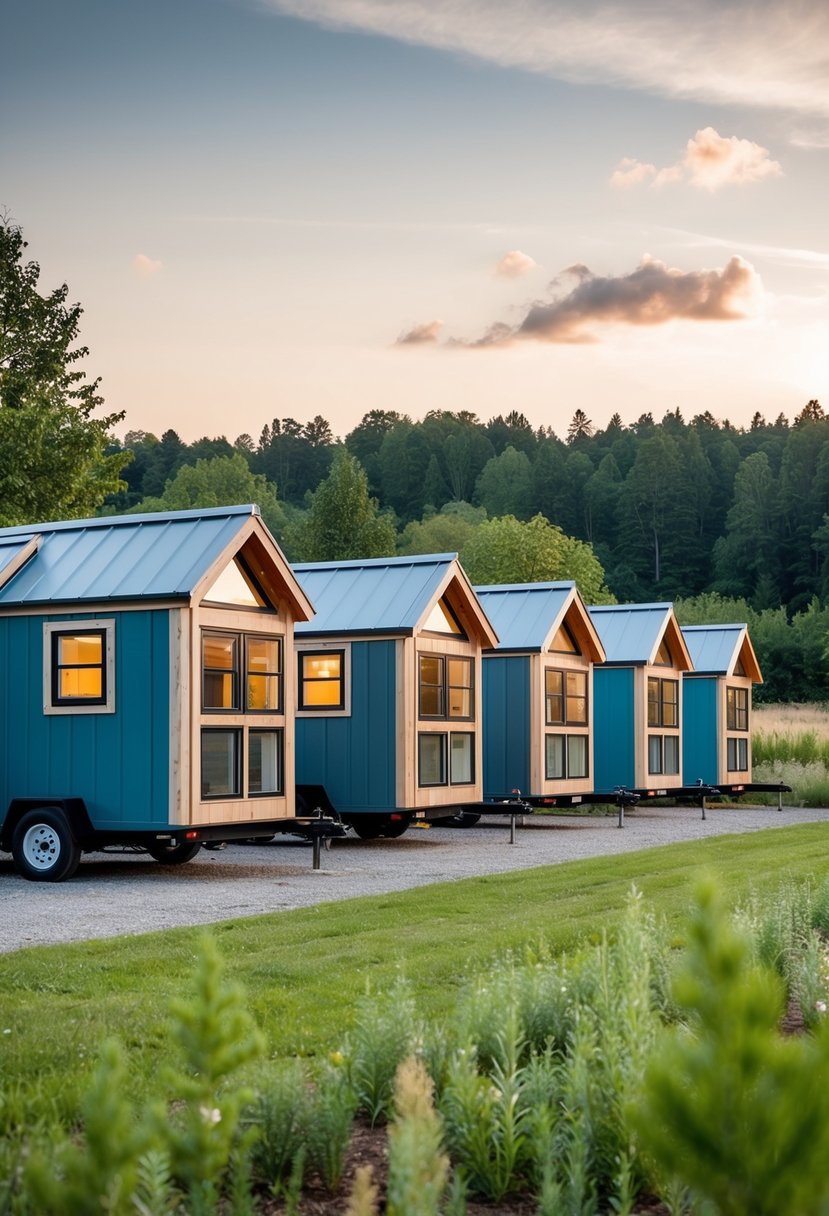
NOAH certified tiny homes come in various types, each designed to meet different needs. Buyers can choose from tiny houses on wheels, stationary tiny homes, and backcountry tiny homes. Each type offers unique features and benefits.
Tiny House on Wheels
Tiny houses on wheels provide great flexibility. They are designed to be moved easily, making them a popular choice for those who enjoy traveling or relocating.
Many models include full kitchens, bathrooms, and living spaces, allowing for comfortable, compact living.
These homes are often built to RV standards, which means they must meet specific safety and quality measures.
This mobility allows residents to explore different locations while enjoying their home.
Buying a tiny house on wheels can also be a cost-effective option since it can save on land costs.
Stationary Tiny Homes

Stationary tiny homes are built on a permanent foundation. These homes can be customized to fit specific land and zoning requirements.
Owners enjoy the stability and permanence that a foundation offers. Features like landscaped yards and dedicated utilities can enhance the living experience.
Stationary tiny homes often include larger living spaces compared to their mobile counterparts.
They can be designed for year-round living.
Many also come with energy-efficient appliances, making them a sustainable choice for those seeking a smaller footprint.
Backcountry Tiny Homes
Backcountry tiny homes are designed for remote locations. They are often built with rugged materials to withstand various weather conditions.
These homes may feature off-grid capabilities, including solar power and rainwater collection.
Living in a backcountry tiny home allows residents to connect more deeply with nature. The compact design encourages minimalism and outdoor activities while providing essential comforts.
Many backcountry models include clever storage solutions to maximize small spaces, making them practical for adventure seekers.
Design Features of NOAH Certified Tiny Homes
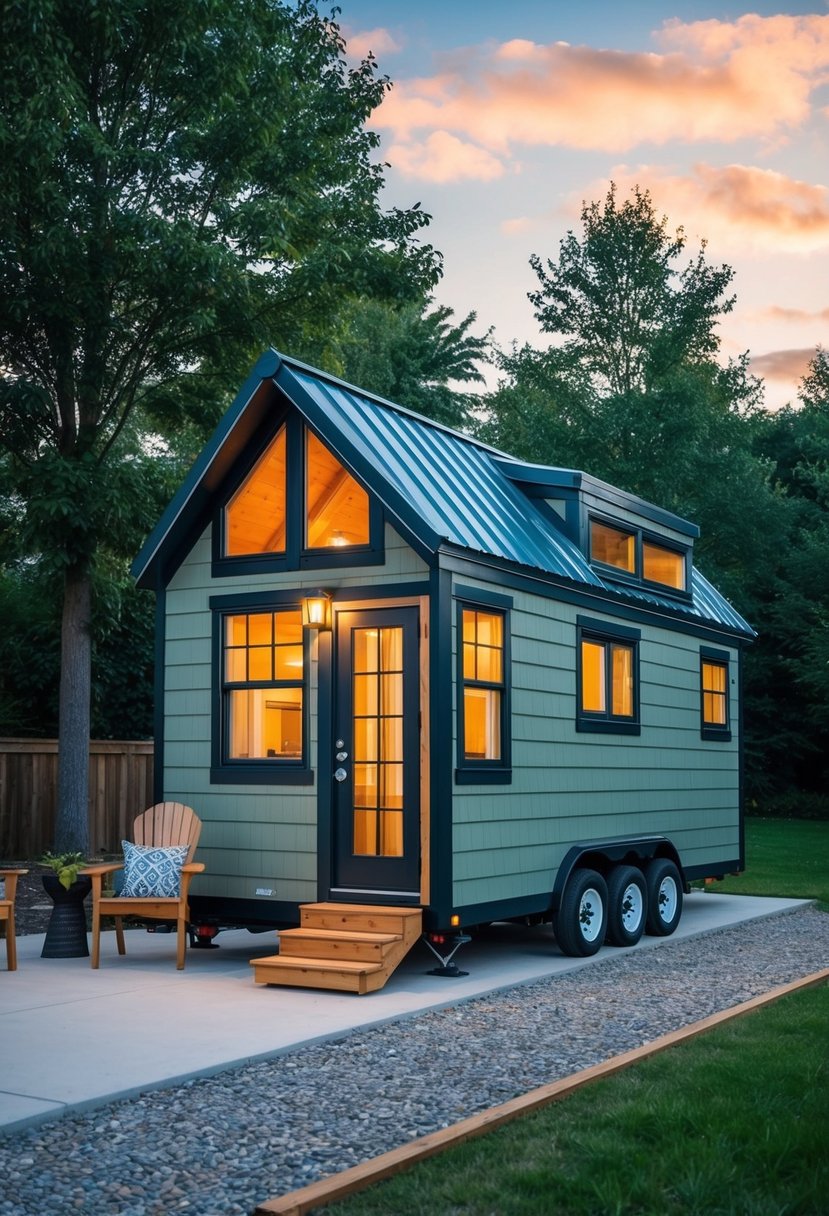
NOAH Certified Tiny Homes combine clever design with functionality. These homes maximize space and provide essential comforts. Key features include innovative storage solutions, efficient kitchens, and cozy loft bedrooms.
Space-Saving Solutions
Space-saving solutions are crucial in tiny homes. Smart design elements help maximize every square foot. For instance, many tiny homes incorporate built-in furniture, like foldable tables and Murphy beds.
- Under-Stair Storage: This area can hold essentials or seasonal items.
- Multifunctional Spaces: Rooms often serve multiple purposes, like a living area that transforms into a guest room.
Additionally, LED lighting is popular, enhancing the ambiance while saving energy. This allows for an open and airy feel, making spaces look larger.
Functional Kitchens in Tiny Spaces
Kitchens in NOAH Certified Tiny Homes are crafted to optimize utility. They often feature full-sized appliances to maintain functionality without sacrificing space. Essential elements include:
- Compact Layouts: U-shaped or galley layouts are common.
- Smart Appliances: Energy-efficient models fit seamlessly, including dishwashers and refrigerators.
Countertop space is maximized with extendable options. Storage is thoughtfully planned in cabinets that reach the ceiling. Quartz countertops are often used, providing durability and style.
Loft Bedrooms
Loft bedrooms effectively utilize vertical space in tiny homes. These elevated areas provide a cozy sleeping environment that separates the living area from the bedroom.
- Height Considerations: Most lofts have enough headroom for comfort, making them feel spacious.
- Bedding Options: Many designs include queen-size beds for convenience.
Two lofts are sometimes available, allowing for guest accommodations. This design keeps living areas open while maintaining privacy. Access is usually via a ladder or staircase, enhancing the home’s character.
These design features make NOAH Certified Tiny Homes practical and enjoyable to live in.
Key Amenities in NOAH Certified Tiny Homes
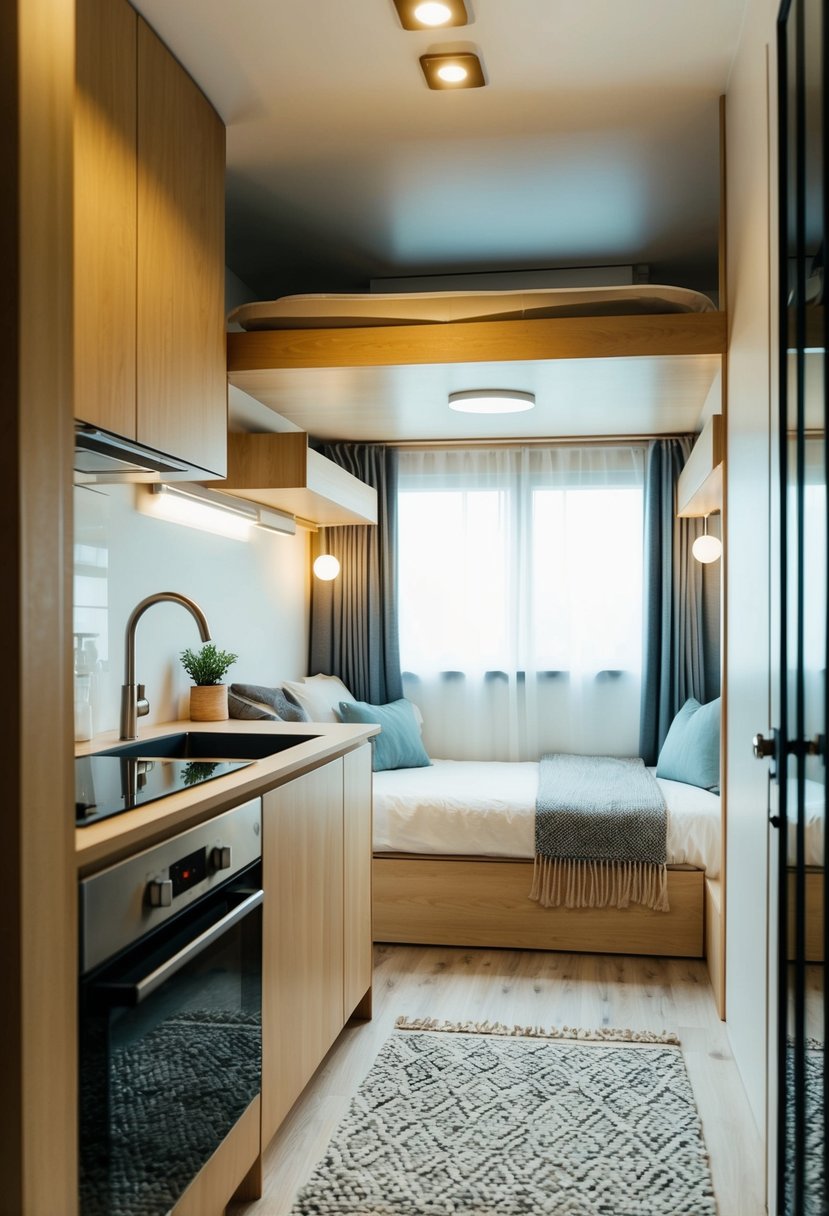
NOAH certified tiny homes come equipped with essential amenities designed for comfort, functionality, and efficiency. These features cater to various living needs while maintaining the charm and simplicity of tiny living.
Heating and Cooling Systems
Effective heating and cooling are vital for comfort in tiny homes.
Many NOAH certified models include a ceiling fan to promote air circulation.
Additionally, homes often feature high-quality insulation to regulate temperature, minimizing energy costs.
Some models come with energy-efficient mini-split systems, providing both heating and cooling options.
This versatility ensures a pleasant living environment year-round, accommodating seasonal changes effectively.
Water Systems and Bathrooms
Water systems in NOAH certified homes are designed for both convenience and sustainability. Many include a water heater that provides instant hot water, enhancing the shower experience.
Bathrooms are often equipped with standard fixtures like a shower and a composting toilet or a regular flush model.
These designs maximize space while ensuring necessary comforts.
Customized vanities often feature a silent exhaust fan, contributing to efficient airflow and moisture control.
Cooking and Dining Facilities
Cooking amenities in NOAH certified tiny homes are particularly user-friendly. Most kitchens come with a 2-burner cooktop, allowing for versatile meal preparation without overcrowding. Some models also feature a dishwasher, making kitchen cleanup much easier.
A compact dining table serves as a functional area for meals and activities, promoting family bonding while saving space.
These thoughtful designs ensure that even tiny kitchens are equipped for daily living.
Living and Storage Areas
Living and storage spaces in NOAH certified tiny homes are crafted to maximize utility.
Many homes feature innovative storage solutions, such as under-bed drawers and built-in shelves.
The living area is often open and airy, promoting a sense of spaciousness. Unique layouts can include lofted sleeping areas, freeing up ground space for daily activities.
These features help occupants make the most of their living environment while embracing the benefits of tiny living.
The Purchasing Process

Buying a NOAH certified tiny home involves several important steps. The process includes finding available homes, exploring financing options, and preparing for ownership.
Each step ensures that buyers make informed decisions and find a home that suits their needs.
Finding NOAH Certified Tiny Homes for Sale
To begin the search for a NOAH certified tiny home, buyers can explore several avenues. Online platforms specializing in tiny homes are a popular choice. Websites often list homes that have NOAH certification, ensuring quality and safety.
Local real estate agents can also help in finding certified models in specific areas. Visiting tiny home shows or fairs provides opportunities to see homes up close and meet builders.
Buyers should ensure the home’s certification status is verified. This guarantees that the dwelling meets all necessary building codes and quality standards. By focusing on certified options, buyers can invest confidently.
Financing Options for Buyers
Financing a tiny home can differ from traditional home loans. Many lenders offer specialized loans for NOAH certified tiny homes. Potential buyers should research these options to find favorable terms.
Some common financing methods include personal loans, RV loans, or mortgages specifically designed for tiny homes. Credit scores and personal finances play a crucial role in securing these loans.
Additionally, buyers should consider any upfront costs involved, such as down payments and closing costs.
Understanding these aspects helps in planning the budget effectively. It is also wise to explore grants or assistance programs that may be available for tiny home buyers.
Preparing for Tiny Home Ownership
Before committing to a tiny home purchase, buyers need to prepare for the unique lifestyle that comes with it. Understanding zoning laws and land requirements is crucial.
Buyers should research the land where they intend to place the tiny home, including utilities and access to services. Knowing the limitations and regulations of living in a tiny home can prevent future complications.
Furthermore, downsizing possessions is an important step. Adopting a minimalist lifestyle enhances the tiny home experience. This preparation leads to a smoother transition into tiny home ownership, making it a fulfilling choice.
Ownership and Maintenance
Owning a NOAH certified tiny home brings unique responsibilities and opportunities. Proper maintenance ensures safety and comfort, while upgrades can personalize the living space.
Maintaining a Tiny Home
Maintaining a tiny home involves routine checks and upkeep to ensure everything functions well. Regular inspections should focus on:
- Plumbing: Check for leaks in pipes and fixtures.
- Electrical Systems: Ensure all outlets and wiring are safe and up to code.
- Exterior: Keep the exterior clean and free from debris to prevent damage.
It is also essential to regularly clean the roof and gutters. This can help avoid water damage. Schedule seasonal maintenance and keep a log of repairs to track issues over time. Investing time in maintenance can prolong the life of the tiny home and provide a safe, enjoyable living environment.
Upgrading Your Tiny Home
Upgrading a tiny home can enhance comfort and functionality. Owners often consider these options for personalization:
- Energy Efficiency: Install solar panels or high-efficiency appliances to reduce energy costs.
- Storage Solutions: Use built-in furniture or multi-functional pieces to maximize space.
Owners can also enhance the interior design with paint or new fixtures. Upgrading the outdoor area, like adding a deck or garden, creates more usable living space. By focusing on a few key areas, owners can significantly increase the value and enjoyment of their tiny home.
Frequently Asked Questions
Many people have questions about NOAH certified tiny homes. These homes offer unique benefits, impact resale values, and have specific legal requirements for placement. It is important to understand these aspects before making a purchase.
What does NOAH certification signify for tiny homes?
NOAH certification indicates that a tiny home has met specific safety and quality standards. This certification ensures that the construction and materials used are reliable and safe for living. Buyers can have confidence knowing these homes have undergone thorough inspections.
How does NOAH certification impact the resale value of a tiny home?
NOAH certified homes often have a higher resale value. They typically sell faster and at better prices compared to non-certified homes. Buyers see the certification as a mark of trust and quality, making these homes more attractive in the market.
What factors should be considered when purchasing a tiny home on wheels in Texas?
When buying a tiny home on wheels in Texas, consider the weight, design, and intended use. It’s also essential to check local regulations regarding zoning and permits. Understanding how the home will be used daily can help determine the right size and features.
What are the financing options available for buying a tiny house?
Financing options for tiny homes include personal loans, RV loans, and some mortgage programs. Traditional banks may be hesitant to finance tiny homes, so specialized lenders may be a better option. Buyers should research various financing routes to find the best fit for their situation.
How does the cost of a Walmart tiny house compare to other tiny homes on the market?
Walmart’s tiny house options are generally priced lower than many custom built tiny homes. These homes may lack some features found in higher-end models. Buyers should evaluate their needs and budget when considering Walmart’s offerings versus more specialized tiny homes.
What are the legal requirements for placing a tiny home in different regions within the USA?
Legal requirements for placing a tiny home vary by state and local jurisdiction. Some areas may require permits while others may have strict zoning laws. It is crucial for buyers to research the regulations in their specific location to ensure compliance.







